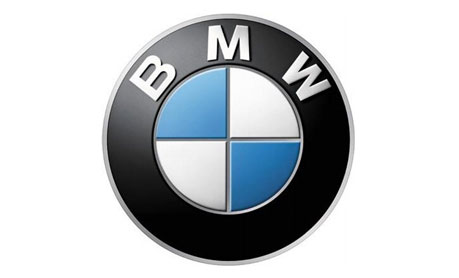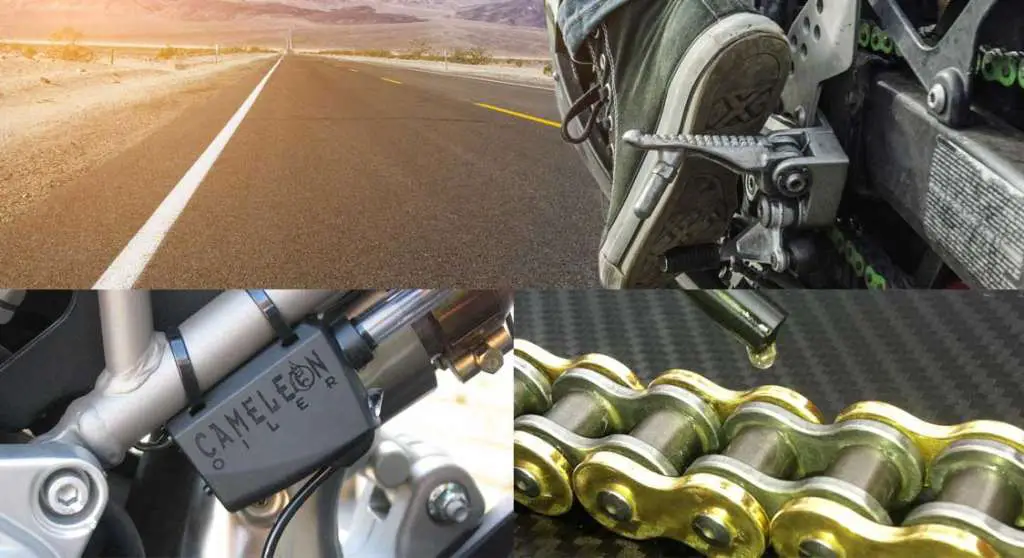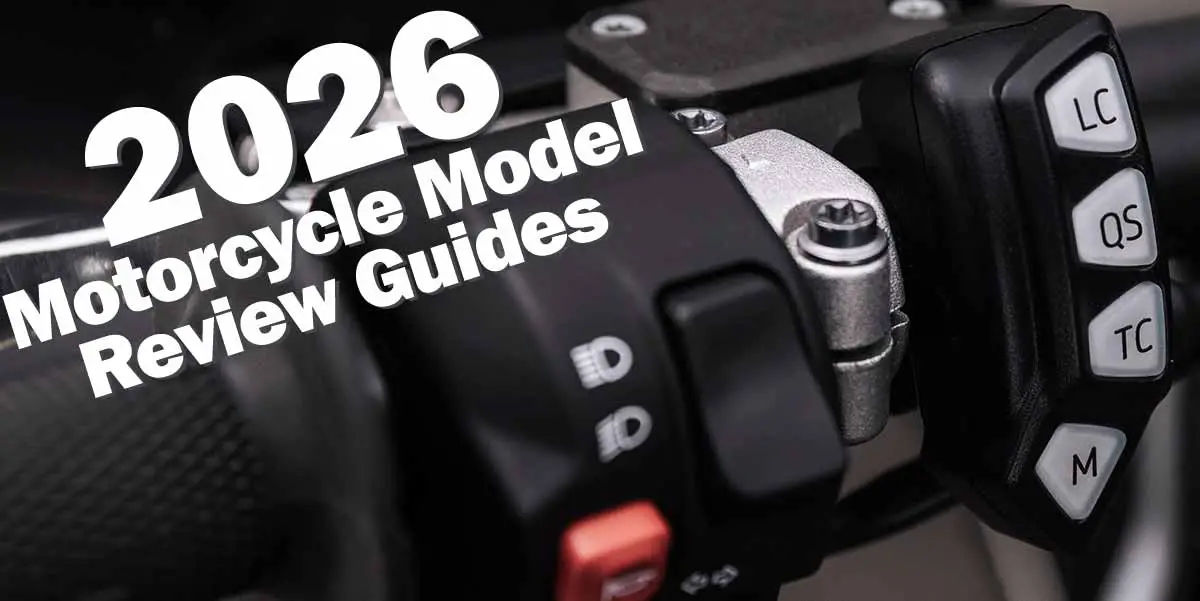
According to our Twitter/X poll, the vast majority (97.7%) of TMW readers want ICE (Internal Combustion Engine) vehicles. Very few are interested in EV, eBike or even hybrid motorcycle solutions (2.3%). What are the WHO, WEF and Progressive governments going to do? Solution! Have your ICE engines run on eFuels! Welcome to Inspiration Friday E-Fuels over Electric Vehicles, the palatable solution of the future?
I’m squarely in the 97.7% majority of readers (sorry, 2.3% nothing against your choice). but I want all the thrills a motorcycle or car can offer and that includes the smoke, rumble and roar of a highly tuned engine!
But what about these eFuels? Can I “Save the Planet”, “decrease global warming” and “Meet global energy needs” at the same time as having my carbon pollution spewing toxic earth killing planet destroying and thoroughly enjoyable fire breathing motorcycle? Can I? Should I be begging to at this point in 2024?
Nordoel and BMW are leading the pack along with WorldSBK.
Synthetic liquid fuels, eFuels, It is carbon dioxide-neutral fuel that can have the properties of diesel as well as gasoline and kerosene. It is produced using desalinated seawater, which is split using electrolysis using renewable energies such as photovoltaics, wind and water energy. The resulting hydrogen is enriched with the carbon dioxide filtered from CO₂ hydrogenation to produce methane. The electrical energy is stored in the resulting liquid fuel via the power-to-liquid paths.
Hmmm… You had me till the methane part…
The possible use of eFuels in structurally and economically weak countries that do not have the budget to build all the infrastructure.
Yes, yes, but does it just “work”?
The CO2-reduced fuel RacE-Fuel WSBK R40-A, with a regenerative share of at least 40%, will officially debut at the start of the FIM Superbike World Championship (WorldSBK) season in Australia.
Real-world testing.
The initial tests with the alternative fuel were successfully completed in January in Jerez, Spain, and Portimao, Portugal. This was preceded by countless hours of development on the engine test facilities in Munich. During the tests in southern Europe, the ROKiT BMW Motorrad WorldSBK Team, Bonovo action BMW Racing Team, and BMW Motorrad WorldSBK Test Team optimized the efficiency and performance of the alternative fuel for motorsports. The competitiveness and readiness for use of the regenerative fuel RacE-Fuel WSBK R40-A, with a minimum of 40% “non-fossil” content as mandated by the FIM regulations for 2024, were confirmed. Thus, the RacE-Fuel WSBK R40-A becomes the first regenerative fuel based on MtG (Methanol-to-Gasoline). Development work continues to deepen the insights from previous experiments and identify potential areas for optimization.
“Due to the regulations in FIM WorldSBK, the use of fuels with a non-fossil content of at least 40 percent will be mandatory starting this season.”
Mandatory minimum of 40% “non-fossil” content…well, well…
SO, what do you think? Would you pump in eFuels if it meant you got to keep your ICE motorcycle or make the switch over to an EV bike? Does keeping your ICE bike inspiring to you or is it more inspiring now to own an eBike?
Check out the last 2023 Motorcycle and the newest 2024 Motorcycle Models right here at Total Motorcycle. Reach new highs in motorcycling by reading, using and supporting Total Motorcycle. We support the riding world.
Don’t forget to support us to support riders worldwide. We could always use more gas in the tank!Total Motorcycle would like to thank Nordoel, BMW, WorldSBK plus our over 425 million of motorcycle riders and enthusiasts who visit and support TMW for inspiring us to bring you this week’s Inspiration Friday: Harley-Davidson Museum & Mama Tried Celebration! Each week we bring you another Inspiring Motorcycle story to inspire you to get out and ride. Please help us by joining Total Motorcycle on Twitter/X, YouTube and Patreon or by cash donation. This may be the last Inspiration Friday without your support. Please help us help riders, support motorcyclists and motorcycling worldwide today. Thank you. |
After 5 1/2 years Total Motorcycle Inspiration Friday is at risk to be canceled due to low reads! Don’t let this happen. Share, support and repost to save Inspiration Friday if you enjoy reading it each week!
EFUELS, OUR SUSTAINABLE FUTURE
Global energy needs and the demand for mobility are increasing. At the same time, fears of increasing global warming are increasing. NORDOEL supports research into alternative fuels in order to remain attractively positioned for the future.
Especially in the current era and in our current awareness of climate and environmental protection, it is clear that alternatives to fossil fuels are indispensable. One possible model is electromobility. However, especially for long distances in road traffic, this technology is not yet so advanced that it can offer the same conveniences such as a long range and easy refueling. Another aspect is the insufficient power supply when charging all electric vehicles at the same time as a result of rush hour traffic.
EFUELS AS A UNIVERSAL SOLUTION IN THE CLIMATE ENERGY MIX
Synthetic liquid fuels, which particularly include so-called eFuels, offer a solution to the problems mentioned above. The carbon dioxide-neutral fuel can have the properties of diesel as well as gasoline and kerosene.
CLIMATE-FRIENDLY PRODUCTION FROM RENEWABLE ENERGY
It is produced using desalinated seawater, which is split using electrolysis using renewable energies such as photovoltaics, wind and water energy. The resulting hydrogen is enriched with the carbon dioxide filtered from the environmental air using the Fischer-Tropsch process or CO₂ hydrogenation to produce methane. The electrical energy is stored in the resulting liquid fuel via the power-to-liquid paths.
Although production in Germany is made more difficult by the high electricity costs, there are already opportunities for optimization. The plan is to produce eFuels not here in Germany, but in energy-rich areas. The sunny regions of Africa and the Latin American areas with constantly running wind bands are particularly ideal as production sites due to the abundance of green electricity. Due to its liquid state, the resulting fuel can be shipped as usual by tanker to the desired destination.
FURTHER ADVANTAGES OF EFUELS
EFUELS IN DEVELOPING COUNTRIES WITH LOW ENVIRONMENTAL STANDARDS
Another advantage is the possible use of eFuels in structurally and economically weak countries that do not have the budget to build all the infrastructure.
USE OF EXISTING INFRASTRUCTURE
It has already been proven that neither filling stations, transport routes, logistics nor any engines need to be adapted. The synthetic fuel can simply be filled into the existing tank farms and engines and also mixed with the fossil fuels in the transition phase. First, hydrogen is obtained from desalinated seawater via electrolysis using renewable electricity, which is then synthesized with carbon dioxide into a greenhouse gas-neutral liquid fuel using the Fischer-Tropsch process developed in Germany in 1925. This can be used as an admixture in gasoline, diesel or heating oil or as a pure, climate-neutral fuel that can replace all of today’s conventional liquid energy sources.
ADDITIONAL CLIMATE-FRIENDLY BENEFITS:
Nitrogen and fine dust emissions, as we know them from current combustion engines, are significantly reduced by eFuels. But that’s not all. In contrast to e-mobility, the problem of disposal and recycling problems does not arise.
IMMEDIATE ACTION AGAINST CLIMATE CHANGE
The use of synthetic fuel would enable the average consumer to immediately do something about climate change. However, if one were to focus on converting the global vehicle fleet to e-mobility, this process would take far too long.
EFUELS IN DEVELOPING COUNTRIES WITH LOW ENVIRONMENTAL STANDARDS
Another advantage is the possible use of eFuels in structurally and economically weak countries that do not have the budget to build all the infrastructure.
USE OF EXISTING INFRASTRUCTURE
It has already been proven that neither filling stations, transport routes, logistics nor any engines need to be adapted. The synthetic fuel can simply be filled into the existing tank farms and engines and also mixed with the fossil fuels in the transition phase. First, hydrogen is obtained from desalinated seawater via electrolysis using renewable electricity, which is then synthesized with carbon dioxide into a greenhouse gas-neutral liquid fuel using the Fischer-Tropsch process developed in Germany in 1925. This can be used as an admixture in gasoline, diesel or heating oil or as a pure, climate-neutral fuel that can replace all of today’s conventional liquid energy sources.
Toyota GR Supra GT4 starts with synthetic fuel Racing e-fuel 98 – up to 90% less CO2 emissions.
For the first time, the “TGR-E United” team will compete in the ADAC TotalEnergies 24h Race Nürburgring with a vehicle that will not be fueled with fossil fuel, but with climate-friendly and almost CO2-neutral synthetic fuel.
NORDOEL’s current commitment includes, among other things, active participation in UNITI’s E-Fuels for Future campaign at all NORDOEL gas stations. We would like to make the general population aware of this innovative and at the same time clean product.
LABLE AND IN USE
The LOTHER GROUP already sells the bridge product GTL (Gas-to-Liquid) through its subsidiary NORDOEL to airports, ports, waste disposal companies, farmers, golf courses, city cleaning companies, stud farms and much more, thus making a significant contribution to climate protection.
In this specific case, the use of the bridge product GTL means a reduction in NOX, NO, NO2, CO2, HX, as well as soot values and, in some cases, CO values. Another advantage of using GTL is the reduction in engine noise by 5 to 10 dB.
BMW Motorrad Motorsport uses alternative fuel from NORDOEL in WorldSBK.
The CO2-reduced fuel RacE-Fuel WSBK R40-A, with a regenerative share of at least 40%, will officially debut at the start of the FIM Superbike World Championship (WorldSBK) season in Australia.
Munich/Hamburg. The partnership announced in March 2023 between BMW Motorrad Motorsport and NORDOEL has led to the development of a fuel aimed at reducing the environmental impact of racing. By integrating advanced technologies and sustainable production processes, a fuel has been developed that not only keeps engine performance but also significantly reduces CO2 emissions during the production phase. The CO2-reduced fuel RacE-Fuel WSBK R40-A, with a regenerative share of at least 40%, will officially debut at the start of the FIM Superbike World Championship (WorldSBK) season in Australia.
Real-world testing.
The initial tests with the alternative fuel were successfully completed in January in Jerez, Spain, and Portimao, Portugal. This was preceded by countless hours of development on the engine test facilities in Munich. During the tests in southern europe, the ROKiT BMW Motorrad WorldSBK Team, Bonovo action BMW Racing Team, and BMW Motorrad WorldSBK Test Team optimised the efficiency and performance of the alternative fuel for motorsports. The competitiveness and readiness for use of the regenerative fuel RacE-Fuel WSBK R40-A, with a minimum of 40% “non-fossil” content as mandated by the FIM regulations for 2024, were confirmed. Thus, the RacE-Fuel WSBK R40-A becomes the first regenerative fuel based on MtG (Methanol-to-Gasoline). Development work continues to deepen the insights from previous experiments and identify potential areas for optimisation.
The partnership between BMW Motorrad Motorsport and NORDOEL remains a pioneer in the development of sustainable technologies in motorsports. Both companies are firmly committed to further reducing the environmental impact in racing.
“Due to the regulations in FIM WorldSBK, the use of fuels with a non-fossil content of at least 40 percent will be mandatory starting this season. We are very pleased to have found a partner with tremendous expertise in NORDOEL,” says Christian Gonschor, Technical Director BMW Motorrad Motorsport. “We have worked closely with NORDOEL in the development of such a fuel already last year, and this winter, during the season preparation, we were able to use it successfully without any technical issues. All our bikes were on the track with this new fuel during the tests in Spain and Portugal, and we are convinced of this collaboration.”
“We are very excited about the collaboration with BMW Motorrad Motorsport to develop this innovative fuel RacE-Fuel WSBK R40-A,” said Dirk Wullenweber, Director Commercial Fuel & Marketing of NORDOEL. “Our goal is to create sustainable solutions for the motorsport industry, and this CO2-reduced fuel is a significant step in that direction. The aim of our collaboration is to develop a 102 octane fuel with 99% CO2 savings, similar to eFuel 95 Octane (99% renewable).”
Alternative fuels: BMW Motorrad Motorsport part of an innovative and government-supported research project.
International motorcycle racing is setting course for greater sustainability. In doing so, one area to address is that of fuel. With this in mind, the Superbike commission of the FIM World Superbike Championship (WorldSBK) has decided that, as in MotoGP, the fuels used must be made from at least 40 percent fossil-free components as of the 2024 season.
Munich. International motorcycle racing is setting course for greater sustainability. In doing so, one area to address is that of fuel. With this in mind, the Superbike commission of the FIM World Superbike Championship (WorldSBK) has decided that, as in MotoGP, the fuels used must be made from at least 40 percent fossil-free components as of the 2024 season. BMW Motorrad Motorsport is preparing intensively for this and is heavily involved in the development of such alternative fuels, as a partner of the company NORDOEL within the government-supported joint project DeCarTrans.
DeCarTrans stands for ‘Demonstrating a Circular Carbon Economy in Transport Along the Value Chain’. Along with other companies and research centres, one of the associated partners is the Lother Group, to which NORDOEL belongs. The project partners want to demonstrate how renewable fuels can be produced on an industrial scale, with the goal being to significantly reduce CO2 emissions in the existing fleet. The joint project DeCarTrans is being promoted by the Federal Ministry for Digital and Transport. Within the framework of DeCarTrans, NORDOEL decided to work with BMW Motorrad Motorsport on the research and development of alternative fuels.
“We are pleased to be technology partner for a climate-neutral future as part of DeCarTrans,” said Dirk Wullenweber, Area Manager for Marketing & Commercial Fuels at NORDOEL. “Previous studies have already shown that synthetically produced fuels can partially or completely replace conventional petrol in the existing fleet. This is a very good basis for the further development of our alternative fuels, in which we have consciously selected BMW Motorrad Motorsport as our partner. In motor racing, totally different demands are placed on a fuel compared to those faced in everyday use. BMW Motorrad Motorsport has the know-how, experts and measuring facilities to test and analyse all aspects of our fuels at the limit. This allows us to develop a top-quality, alternative high-performance fuel for motor racing and everyday use. We, and the entire DeCarTrans project, benefit from the insights gained in Munich in our efforts to minimise the emission of pollutants.”
The joint project DeCarTrans, which got underway in January 2023, was recently presented in greater detail in Hamburg, as part of the launch of the ‘Hamburg Blue Hub’ project – a trading point, open to all suppliers and customers, for eMethanol and other synthetic fuels from all over the world. Also on display at the launch were vehicles, in which the alternative fuels may be used in the future, including the BMW M 1000 RR from the FIM Superbike World Championship.
Test procedures at the limit.
Examples of partially alternative fuels that will be used in WorldSBK from 2024 include biologically based fuels like eFuels, which are produced from water and CO2 extracted from the air in chemical processes with renewable electricity. BMW Motorrad Motorsport puts these fuels through intensive test procedures, in which they are pushed to their limit, for NORDOEL. In doing so, they are also preparing for the future of WorldSBK. The advantage of the alternative fuels is that they can be used in conventional combustion engines – including in high-performance racers like the BMW M 1000 RR.
“NORDOEL supplies us with alternative fuels, which we test under different conditions on our engine test bench,” said Thomas von Westberg, who is responsible for the project at BMW Motorrad Motorsport. “The focus is currently on our WorldSBK engine, in which we will be using these alternative fuels as soon as 2024. We perform analyses, fuel experts evaluate the fuel from a chemical perspective, and the focus is obviously on the work carried out on the test bench to see how it performs when the engine is fired up, with corresponding analyses of the combustion process, carburetion, performance and consumption. Then there are other issues that come with alternative fuels. We also perform basic tests with other engines, such as our EWC engine. We play the results back to NORDOEL, and colleagues there can then make appropriate adjustments. The result is transparent and close communication. The goal of the development is a fuel that meets FIA regulations and can, at the same time, achieve the best possible performance and consumption figures in combination with our WorldSBK engine.”
Special demands of motor racing.
The measuring technology of the motorsport test bench allows the BMW Motorrad Motorsport engineers to handle every detail. “We see what happens in the engine,” explained von Westberg. “Through corresponding applications, we can correct the parameters that are influenced by the fuel itself, such as the octane rating. This makes the engine more or less sensitive to knocking. We can then vary things like the ignition timing accordingly. The necessary automations and analysis systems are available to us for the many different topics that we analyse.”
The demands placed on an alternative fuel used in motor racing are even more specific than those placed on a fuel for production motorcycles. “One issue is combustion and sensitivity to knocking, as our engines are far more condensed than production motorcycles,” said von Westberg. “On the other hand, a fuel must obviously always provide a performance advantage. Then it is important to guarantee a consistent performance throughout the entire lifecycle of the engine.” The first tests with the alternative fuels from NORDOEL have already provided many positive findings.
From the racetrack to the streets.
As a research and development department, BMW Motorrad Motorsport is also working very closely with its production colleagues on the subject of alternative fuels. The departments share all the results of their respective analyses and are regularly in close communication. “Our technical objective is for the partially alternative racing fuel, which we use in WorldSBK, to also be usable in a production bike,” explained von Westberg. “That is also the thinking within the DeCarTrans project and the NORDOEL goal of developing a racing fuel that is also suitable for production vehicles.”
There was already a close relationship with production, as the basis engine for WorldSBK is the production engine for the BMW M 1000 RR. Von Westberg: “The WorldSBK racing engine has many production parts, such as the injection system and fuel pump among others. However, with our racing engine we are obviously always working to the very limit. That means that if something works for us on the racing scene, then it will most probably also work in a production bike in comparable load conditions.”
Initial tests with the new alternative fuels at the racetrack are planned for this year, in order to prepare as well as possible for the use of partially alternative fuels in the 2024 WorldSBK season.

Michael Le Pard (“Mr. Totalmotorcycle”) is the Founder of Total Motorcycle, the world’s largest motorcycle information site, trusted by over 430 million riders since 1999. With over 34 years of experience in motorcycles, gear and rider culture, he has built a global community dedicated to empowering and inspiring motorcyclists.
Total Motorcycle remains his passion project. Combining expert research, hands‑on knowledge and a commitment to helping riders make informed decisions about bikes, gear and safety worldwide.









